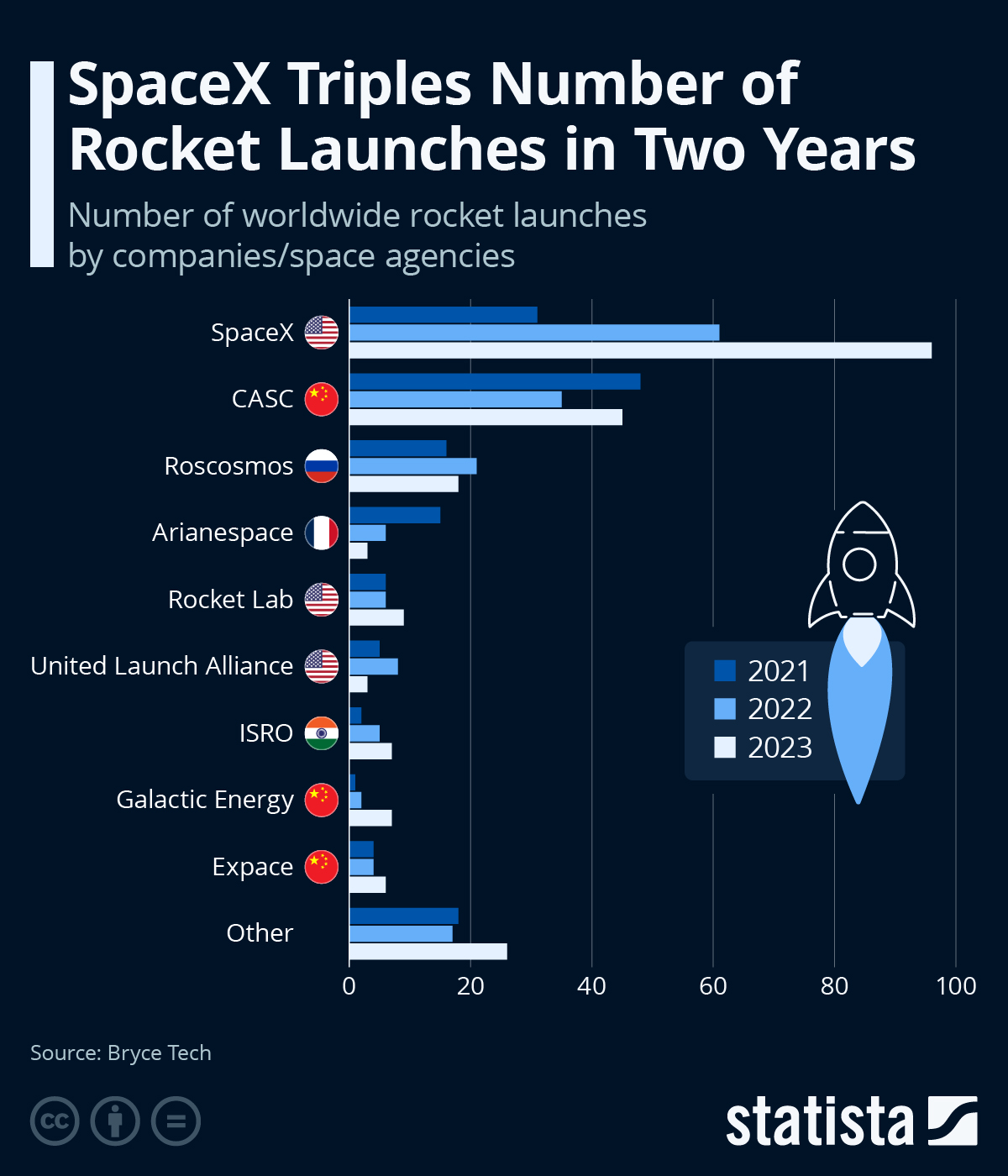this post was submitted on 14 Oct 2024
209 points (85.2% liked)
Technology
76171 readers
2443 users here now
This is a most excellent place for technology news and articles.
Our Rules
- Follow the lemmy.world rules.
- Only tech related news or articles.
- Be excellent to each other!
- Mod approved content bots can post up to 10 articles per day.
- Threads asking for personal tech support may be deleted.
- Politics threads may be removed.
- No memes allowed as posts, OK to post as comments.
- Only approved bots from the list below, this includes using AI responses and summaries. To ask if your bot can be added please contact a mod.
- Check for duplicates before posting, duplicates may be removed
- Accounts 7 days and younger will have their posts automatically removed.
Approved Bots
founded 2 years ago
MODERATORS
you are viewing a single comment's thread
view the rest of the comments
view the rest of the comments

And launching space junk and making viewing the stars less and less clear at an historic rate.
People pay good money for that ‘junk’. A quality internet connection basically anywhere in the world, including at sea and in very remote areas, is far from junk.
Yeah I'm going to agree with you on this one. It blows my mind that as a species we have changed the night sky. When I was a child seeing a satellite dart across the sky was exciting because it was as rare as a shooting star. Now I look up and see a satellite every few minutes. That said, there have been a few times recently that Star Link was the only method of communication I've had in remote areas. It has been very helpful. I think as poorly of Musk as much as the next person but I can at least recognize the ingenuity SpaceX and Star Link.
Really Starlink should be absorbed into and ran by the UN. We only have so much LEO to use, one company is bound to become a monopoly and LEO is the world's not any nation's property.
The UN has no teeth by design and there's a lot of money to be made privately, what makes you think it would happen?
pipe dream
Fuck the UN.
Seriously - when you choose a country with vile fundamental human rights abuses as the head of the human rights commission...
Perhaps not the UN, but I agree that I am uncomfortable with Elon Musk at the helm. I'd prefer to see an international non-profit take control. Even just a regular boring board of directors, at least then it would be the devil that we know.
I agree, but at what cost? When the satellites burn up, they are likely worsening the hole in the ozone layer. And even if they don’t, they are probably contributing to Kessler syndrome, which could ruin low earth orbit for generations.
Sources:
Edit: formatting
Starlink satellites will never contribute to Kessler syndrome. They are far too low for that
Even if they just stopped working in their existing orbit (worst case), they will burn up in a handful of years max
Sure, but that’s just Starlink. G60 was just launched at 1200 km, which will take thousands of years. OneWeb is at a similar altitude. Both are currently much smaller in scale, of course, but still potential problems. Not to mention the impact all three systems are having on astronomy.
For Starlink, I’m much more concerned about the aluminum oxide pollution. I linked the study in my earlier comment, but this magazine article does a better lay explanation: https://universemagazine.com/en/starlink-destroys-the-ozone-layer-that-would-recover-by-2066/ The worst part for me is that we might not actually see the bulk of the effects until 30 years from now when the aluminum from hundreds of tons of burnt up satellites descends into the stratosphere where 90% of our ozone is.